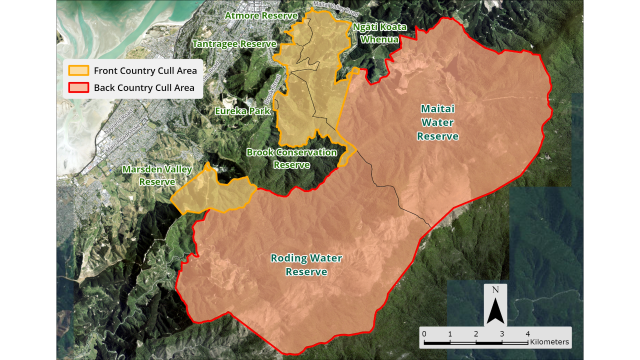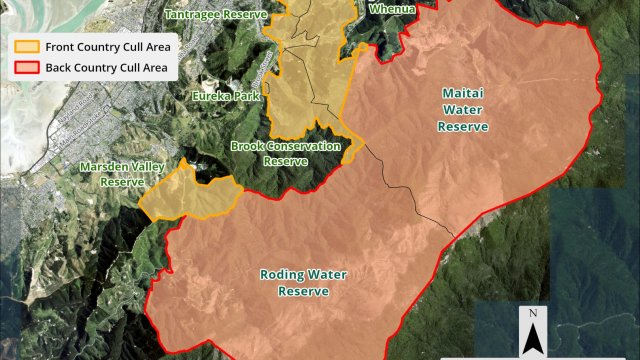Marsden Cemetery secured with perimeter fence
03/12/2021 9:23amWork is due to begin on a permanent fence to deter pigs and deer that originate from the Enner Glynn side of the valley from entering Marsden Cemetery.
The 1km perimeter fence will be 1.8 metres high and cover exposed areas of the cemetery along Marsden Valley Road and Quail Rise.
The decision to build the fence was made following reports of pig damage around headstones and graves and deer grazing at the cemetery in May 2021.
At the time of the first reports, Nelson City Council installed cameras at the cemetery to determine the number and size of the wild pigs and work was taken to ascertain where the wild animals were originating from.
Footage from the cameras revealed a group of wild pigs were visiting the cemetery every couple of nights and digging around the graves. Wild deer are often spotted in the surrounding hills in large numbers.
Cemetery staff spent some time clearing and repairing the turf damage and erected fencing around some plots to minimise damage.
Council staff are also working with nearby landowners to cull deer and pigs in the area. On a wider scale, back and front country culling has taken place throughout Nelson in the last couple of months, with further culls planned in 2022.
Group Manager Community Services Andrew White said he is confident the permanent fence will help bring the issue to a close.
“We’re very conscious of the importance of keeping these graves undisturbed so that family, friends and whānau may visit their loved ones in peace.
“We’ve brought this project forward as fast as we could, given contractor and supply availability, to ensure this matter is resolved swiftly.
Work on the fence is expected to be completed by early January.



